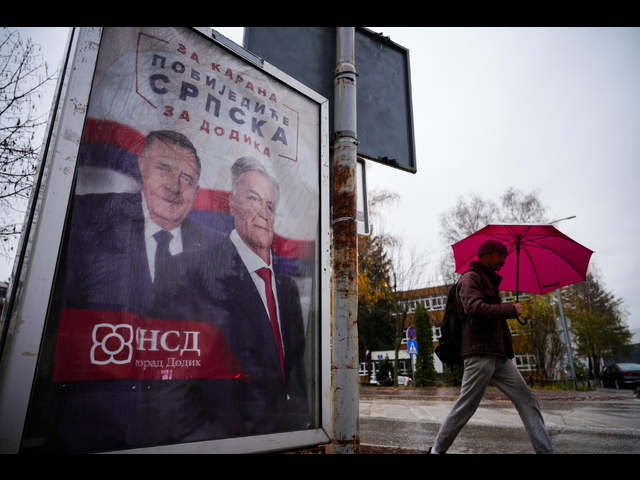
(ANSA-AFP) - SARAJEVO, NOV 21 - The Bosnia's Serb statelet's snap presidential election on Sunday signals an end to the overt political leadership of Milorad Dodik - a populist who regularly threatened to break away from Bosnia. Once seen as a moderate by Western diplomats, Dodik was forced from office over his tense relationship with the international envoy charged with maintaining a peace treaty that has held the country together since its 1990s war. Although it may be the end of Dodik's time in public office, his chosen replacement is a close ally, and many observers see the 66-year-old's step back as a political manoeuvre rather than a retirement. Here are the main steps that led to Sunday's vote. - 'A tourist with no power' - Since the end of the 1992-1995 war, Bosnia has been divided into Serb and Bosniak-Croat entities, linked by central institutions. Reforms aimed at strengthening the central state were often imposed by a high representative - an international appointment granted sweeping powers to maintain the Dayton Peace Accords that ended the conflict 30 years ago. Bosniaks, or Bosnian Muslims, have consistently advocated for a stronger central state, while Bosnian Serbs, who mainly live in Republika Srpska (RS), largely opposed the transfer of power away from the entities. When former German agriculture minister Christian Schmidt arrived to become high representative in 2021, Dodik immediately accused him of being "illegitimate". Dodik claimed Schmidt had not received the necessary UN Security Council approval due to vetoes by Russia and China. But Schmidt remained undeterred, declaring an intent to use all "political tools" at his disposal to make Bosnia a more functional state, anchored to the European Union. Dodik, with close ties to the Kremlin, painted Schmidt's moves as a direct challenge to Republika Srpska and labelled him a "tourist with no power". - 'Existential threat' - Facing pushback from Dodik, Schmidt, within months of his appointment, told the Security Council that Bosnia faced "the greatest existential threat of the post-war era". In April 2022, Schmidt suspended a law that would have allowed the Serb entity to seize state assets within its territory, which covers over half the country. Over a year later, he moved to repeal laws passed by the RS parliament that allowed the entity to ignore his office's decisions and those made by Bosnia's constitutional court. The high representative made it a punishable offence to ignore his decisions; offenders could be imprisoned for up to five years and banned from public office. - Open Crisis - For ignoring these rulings, Dodik was indicted in August 2023. After a lengthy court process, which he said aimed at "eliminating him from the political arena", he was sentenced to one year in prison and banned from office for six years in February. (ANSA-AFP).
